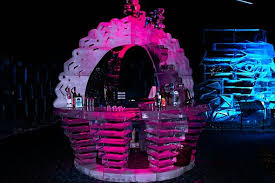 Winter is here and keeping your pond running freely during the cold season allows you to enjoy the beauty of ice sculptures that form. Although this gives you a breathtaking view, too much ice buildup could prevent the water from flowing. Soliciting the service of a pond treatment company Atlanta GA is one way to avoid having to reverse the damage once everything thaws. You could also monitor the water level and periodically check on how it continues to stream as the season continues. If water levels are steadily dropping, or an ice dam is forming, you might be losing water in your pond. That stunning frozen sculpture may be the culprit. Turning off the pump for the remaining time is one option.
Winter is here and keeping your pond running freely during the cold season allows you to enjoy the beauty of ice sculptures that form. Although this gives you a breathtaking view, too much ice buildup could prevent the water from flowing. Soliciting the service of a pond treatment company Atlanta GA is one way to avoid having to reverse the damage once everything thaws. You could also monitor the water level and periodically check on how it continues to stream as the season continues. If water levels are steadily dropping, or an ice dam is forming, you might be losing water in your pond. That stunning frozen sculpture may be the culprit. Turning off the pump for the remaining time is one option.
However, if you prefer to leave the water running until the weather warms, you still want to ensure there will be enough water for the pump to operate properly when needed. Here are a few more tips to consider for your pond. Install a De-Icer As mentioned, pond water freezing is a real concern during freezing temperatures. Properly installing a de-icer before the cold hits will help to keep a section of the pond open. This allows oxygenation and gas exchange without warming the overall temperature of the pond. To get the maximum efficiency out of the de-icer, it should be installed in the shallowest section. If at all possible, you should also keep it from the wind. Laying an insulation board or piece of plywood over the area where you install the de-icer can help to keep any warmth generated from escaping too quickly.
Based on the overall volume, depth and size of your pond, you might need to install more than one de-icer unit to ensure the section remains clear of ice. Fish in the Pond? Prepare Them for the Winter Too! When the water temperature of your pond goes below 50° F, it is time to stop feeding the fish. Typically, they have already gone into hibernation and will stop eating. Before cutting them off completely, wean your fish as temperatures begin to fall to one feeding per week. Even if temperatures fluctuate with warm spells, do not start feeding them again. Plummeting temperatures is a sign that winter pond care is in order. Frigid temperatures may present some challenges for a healthy pond and satisfied fish, but none are insurmountable. Following these tips can help you sustain your pond during the cold months.

Leave a Comment